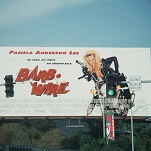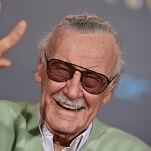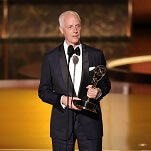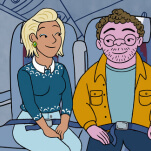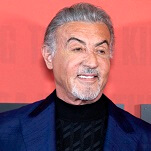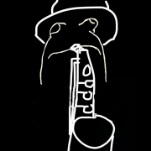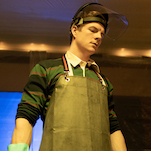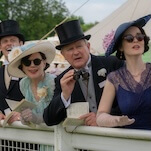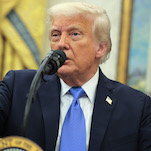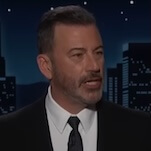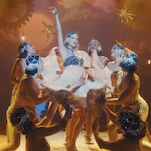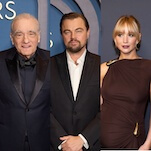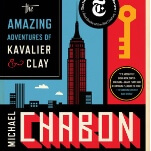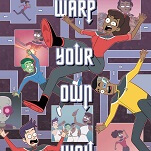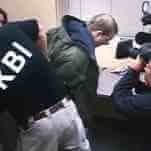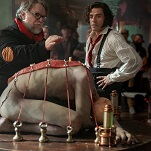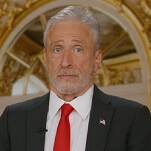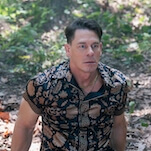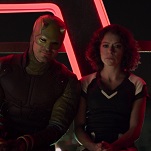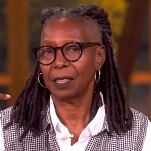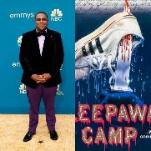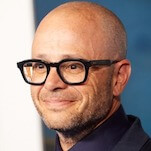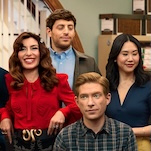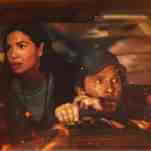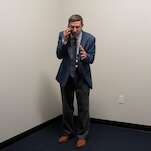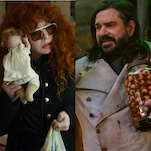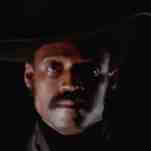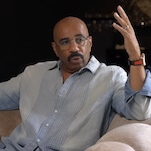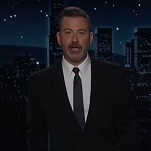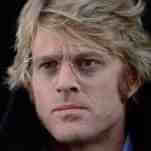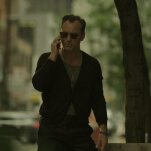Part of the Reitman filmmaking dynasty—okay, maybe not a dynasty, but his father Ivan directed Stripes and Ghostbusters, among many other movies—32-year-old writer-director Jason Reitman has gained success quickly on the strength of three funny, literate, critically respected comedy-dramas. His debut feature, 2005’s Thank You For Smoking, grounded Christopher Buckley’s satire about Washington wheeler-dealers in the subtle treatment of a smoking-industry lobbyist whose life becomes untenable. Reitman broke through to the mainstream with 2007’s sleeper hit Juno, turning Diablo Cody’s Oscar-winning screenplay about a pregnant teenager (Ellen Page) into a humane comedy about a precocious girl forced to make grown-up choices.
JR: We’ve forgotten about the miracle of flight, and we’re just pissed that the food sucks.
AVC: Or that the Internet on the plane—
JR: Is too slow.
AVC: Or doesn’t work!
JR: That’s right, I’ve heard that. It’s about “how instantaneously we go from something being a miraculous invention to it not working well enough.” I had a friend who had a very similar line once, he said “You know, Jason, the other day, I was watching something from space on my cell phone. I was watching CNN on my phone, and CNN was doing a live broadcast from someone who was on the international space station. I’m watching someone can talk live, from a space station in space, on my cell phone, and all I can think of is ‘God, the quality sucks!’” [Laughs.]
AVC: You’ve adapted two books now by contemporary authors, neither of whom had a hand in the screenplay. What has your relationship been like with these authors? Do you have to be up-front with them about what you intend to do?
JR: I get in touch with them very early on. I want to make sure there’s always a level of respect, and I don’t want to wind up in any kind of Kubrick/Stephen King situation where the writer hates me. [Stephen King famously resented Stanley Kubrick’s loose adaptation of his novel The Shining. —ed.] And so I have an early conversation where I talk about the idea that I’m making a movie, and it’s very different from a book. A movie and a book are a different thing. I’m not doing the film version of the book. I’m making a movie. And in both cases so far, I’ve had authors whose books have gone through the wringer to a certain extent. So by the time I’ve come into play, I think they were in such disbelief that a movie could actually be made that they were just thrilled that something was happening.
AVC: Put through the wringer in what sense?
JR: Just other people optioning their books and writing screenplays that were worthless.
AVC: Do they feel protective of their material? Were there lines you wanted to cross?
JR: In both cases, they’ve respected me as a storyteller and have been grateful for the adaptations I’ve done.
AVC: But this particular one does depart a little more. Could you talk about where this book ends and your film begins?
JR: Sure. What I loved about this book is that it’s about a man who fired people for a living—which I thought was kind of a fascinating job—who collected air miles, which I do myself, and believed in the idea of living alone in a way that I thought was really intriguing, because I often think about what it would be like to wake up in a city with nobody and nothing. And from there, I really brought a lot of my own plot to the table. I added Anna—Anna’s character, Natalie. I added Alex [Vera Farmiga’s character], I added the firing online, and I added the backpack speech and the wedding, and the cardboard-cutout idea. So the plot became very much my own and became my way of asking my own questions. But Walter [Kirn], unless he’s lying to my face, seems to really enjoy the movie.
AVC: As a screenwriter, is this the way you like to generate material, to have some idea from elsewhere that you can work your way around?
JR: Yeah. Usually I have my own problems and questions that I’m trying to ask, and in a book, I find the words. I find a point of view. I find kind of a like-minded person, and I can use the book almost like a toolbox. Someone earlier said something I thought was smart, which is that books are “the best sounding board, because they don’t make a sound.”
AVC: Your films rely very heavily on character and strong performances. Do you have actors in mind when you’re writing these?
JR: Definitely. In this case, it was eight or so of the actors in mind when I wrote it: George, Anna, Vera, [Zach] Galifianakis, J.K. Simmons, Jason Bateman, Sam Elliott.
AVC: And you had a sense you could call these people and they’d show up for you?
JR: Some of them I knew I could probably get. George, I had no idea. Sam, I had to really convince him to come in and do that one day. It’s like a one-day role. But that’s how I almost know to write the character, by writing for their voices.
AVC: Then once you have them together, do you have to do anything special to turn a disparate group of actors into a functional ensemble?
JR: No, not really. You just start working. Sorry, I wish there was a better answer, but no, you just show up on set and do your job.
AVC: Are there any secrets to being an actor’s director? Do you have any kind of methodology?
JR: Pick the right actors.
AVC: That’s it?
JR: That’s it. Pick the right actors, understand people, try to achieve honesty at all costs, edit them well. Sorry, there’s no secret. There’s no magic.
AVC: There’s a pretty clear connection, at least in for audiences, between George Clooney’s character and George Clooney the person. Was that connection uncomfortable? Was there any trepidation?
JR: No. The first time I showed the script to George, he said, “I see how people are going to draw a comparison between this character and my persona, and I’m ready to stare that straight in the eyes.” And that was kind of it. That was the only conversation we had about it. I think there’s some obvious connections, and they are what they are. I enjoy an actor going through some sort of self-examination with the character. I much prefer an actor playing a character they identify with rather than the exact opposite of who they are.
AVC: This is a production that mostly predates the current economic crisis, but it’s also a movie that feels very responsive to the times—people losing their jobs and relying on a bedrock of family to carry them through. Was the timing accidental? Was there a way you incorporated that?
JR: The way I incorporated it the most is the thing you already know, that I used real people for the firings. And that just seemed like the right thing to do. I had written these scenes where people got fired, and they just didn’t seem right once we got shooting. They seemed right six years ago, but once we were shooting…
AVC: Was it like a documentary-ish process?
JR: Yeah, we put an ad out in the paper and brought in real people. We would interview them, and then we’d fire them on-camera.
AVC: And just see what would happen?
JR: We would tell them, “You should either respond the way you did the day you lost your job, or if you prefer, the way you wish you’d responded.” It became this kind of improv scene where they were very much in the moment, and they would get angry, get emotional.
AVC: Was that kind of a trial-and-error process as a filmmaker?
JR: It was amazing, actually, how well it worked from the get-go. Right from the first person we interviewed.
AVC: People didn’t feel weird in front of the camera?
JR: We spent about 10 minutes interviewing them on-camera, just to get them comfortable. But I feel like they were Midwesterners who had otherwise not talked to anyone about a lot of things they were feeling, and hadn’t opened up. And there was something strangely cathartic about a situation in which the whole job was to open up, and they could say things and get angry. It was more women than men, which I found interesting. Men didn’t want to open up. When we originally put the ad out, we got many more responses from women than from men who were ready to talk.
AVC: Did you have any methods for drawing out their responses?
JR: No. What was interesting is that we would use this boilerplate kind of legal document that was exactly what was used in most firings. It’s this paragraph that employers are told to read so they don’t have to worry about a lawsuit—it’s very standardized. And the second they would hear that verbiage, you would just see their face change. Their eyes would change. One girl broke out in hives; it was just kind of immediate. And that moment, they were in character, and I didn’t have to do anything.
AVC: When you unveil your films at Telluride and Toronto—you seem to have hit that schedule on all three of your movies—are the people there generally the first audience to see them?
JR: I do a test screening before, just to make sure the movie’s working with a recruited audience. I’ll make adjustments based on that.
AVC: Are you listening for laughs? How do you do it?
JR: No, it’s feel. You can just feel an audience when they’re enjoying it or not enjoying it, or getting something or not getting something. We cut 20 minutes out of this movie from the beginning of editing.
AVC: Is that pretty normal?
JR: I guess so. There are two scenes that got cut out after the test screening.
AVC: Do you regret them? Do you miss things in them?
JR: No, I don’t. I’m just the opposite.
AVC: You can be ruthless about your film?
JR: Oh, I’m extraordinarily ruthless. I cut things before the editor wants to, before the producers want to. I’ll have the studio saying, “Oh, we love that scene!” No, sorry. I don’t believe in director’s cuts where you make things longer. The coolest thing was when Coen brothers did a director’s cut of Blood Simple, and they made it shorter. That was badass. Yeah, there’ll be stuff for the DVD that’s fun. There’s a dream sequence that’s great of George as an astronaut wandering around.
AVC: The films you’ve made so far are neither on a massive scale nor no-budget indies. With these studio-sponsored indie labels either struggling or disappearing, will it be harder for these types of movies to get made?
JR: My films have been hard to make for a while now, and they always will be. Not because they’re indie, but more because they’re films for adults. And I’m in this kind of middle world. This movie cost $25 million. It’s not an independent film. It’s also not a big blockbuster film. It’s really in the middle. And those movies are fewer and farther between.
AVC: You almost get the sense that studios don’t want to bother with movies of this scale, even if they turn a profit. They’re out to do things that are much larger.
JR: Off of Juno, I didn’t have any trouble getting this movie made, but what’s scary is the other movies we’re missing out on. I’m in a pretty good position right now. But I love going to festivals and seeing independent films. There’ll always be a way, though. People will always find a way to make movies.
AVC: You’ve directed a couple of episodes of The Office. What it’s like directing a show that already has a very rigid format in place?
JR: Oh, it’s just fun.
AVC: What do you bring to the table?
JR: Directing The Office is kind of like someone going, “Would you like to drive my Lamborghini?” And I’m like “Yes, I would like to drive your Lamborghini. That sounds like fun.” They just know what they’re doing so well. Coming into The Office, your job is to add 1 percent or 2 percent, where you’re taking it from an A- to an A. That’s the gig. If you fuck up, it’s an A-. You do great, you get it to an A. That’s it. That’s the whole job.
AVC: Is there anything you can take credit for in the episodes you’ve directed?
JR: In “Local Ad,” I really handcrafted the commercial. You’ve seen it?
AVC: Yeah.
JR: So in “Local Ad,” Michael makes his own commercial for Dunder Mifflin, and I really designed that commercial, start to finish. So I’m really proud of that.
AVC: So that’s a feat of directorial…
JR: That’s a directorial element, exactly. If I watched it, I could probably pick out little things where I’m like “Oh, it was my idea for him to try this or that,” but it’s so collaborative, and it’s so writer- and actor-based, that really I’m just—every once in a while I come up with a fun little idea. But my greatest addition to The Office was that commercial.
AVC: You intend to do it again?
JR: Oh yeah. I’m busy right now with this. They shoot into the spring. I’m hoping to do an episode in the spring. I’d love to do one a season. For me, it’s like looking back and saying I directed an episode of All In The Family. It’s the show from this generation that 20, 30 years from now, people will still look back fondly on, and they’ll look at that collection of writers and actors and go “Wow, I can’t believe all those people were in the same place at one time.” So to have my name as a part of it, along with the other great directors, like Harold Ramis and J.J. Abrams, all these other cool directors have come in and done it. And everyone’s nice. It’s one of those few TV shows where the actors are nice, the writers are nice, and you’re a guest in a lovely home.
